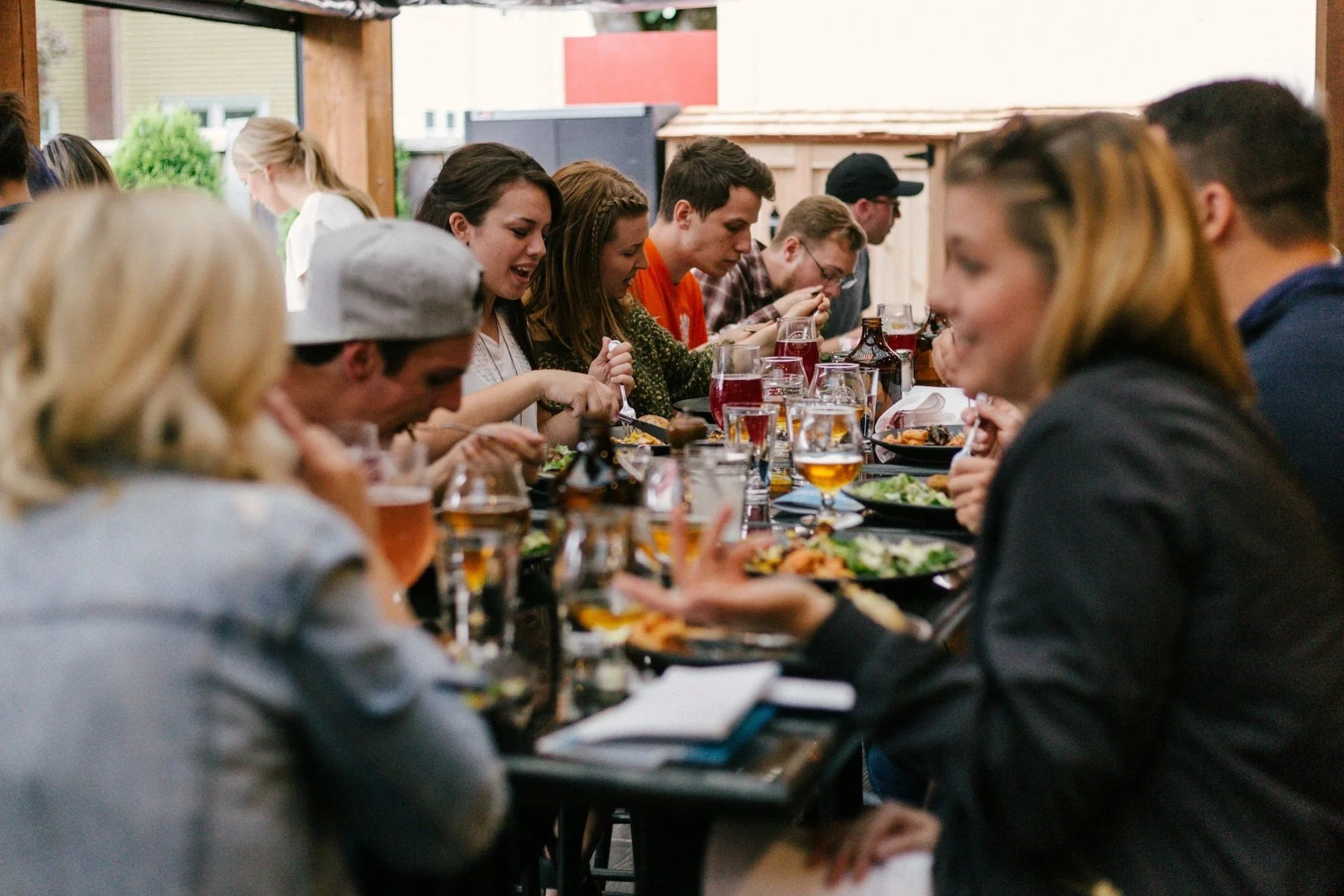Holiday Dread in September? You’re Not Alone
You’re walking through the store, and suddenly there they are, pumpkins. For some people, it’s a cozy cue that fall is coming, and soon the holidays will be here. They feel that spark of excitement as pumpkin spice fills the air. But when you see them, your stomach drops. Instead of anticipation, it’s dread. The holidays don’t feel magical; they feel heavy, tangled with anxiety, complicated family dynamics, and grief that sometimes lingers long after the decorations are gone. If you’re already dreading the holidays, you’re not dramatic, broken, or “too sensitive.” You’re someone who is shouldering real pain in a season that pretends everything is perfect.
Why Holiday Dread Shows Up Early
For many of us, it’s not just about the holiday events themselves, but the history tied to them. Maybe it’s the memory of years past when someone snapped, “That’s fake news, you’ve been brainwashed by the leftist media.” Or the sting of, “Are you sure you should be eating that?” Or the dismissive jab, “Must be nice to sit around in pajamas all day and call it work.” And then, to top it off, there’s the classic minimizer: “Don’t be so sensitive, it was just a joke.”
It’s the pressure to fake closeness with people you’ve never really felt safe with. And because the season starts earlier each year, the stress begins earlier as well. By the time the actual holidays arrive, you’re already emotionally exhausted, dragging around a knot in your stomach every time you see twinkly lights or hear “Jingle Bells.”
You Try To Ignore It
Maybe this year you tell yourself you’re just going to ignore it. Push it down. I’m not going to think about it. But just because it’s not front and center doesn’t mean it’s gone. It’s still there, humming quietly in the background, waiting for the right moment to spill over.
It can show up as snapping at your partner over the dishes. Before you can even catch your breath, they ask, “Did you talk to your family today?” The shame hits hard because you know it wasn’t really about the dishes. Or maybe it’s bursting into tears at a commercial you can’t even explain. For some, it’s the exhaustion that no amount of napping seems to alleviate. For others, it’s the headaches, the tight shoulders, the heavy chest that won’t let up. This is your body’s way of whispering “something’s wrong”, even when you’re trying to pretend everything’s fine.
Hoping This Year Will Be Different
You tell yourself, “Maybe this year will finally be different.” You practice the conversations in your head. This time I’ll stand up for myself, and they’ll finally listen. Or you picture the perfect dinner where, somehow, no one argues, everyone laughs, and the hugs feel warm instead of forced.
It’s a powerful hope, but also a painful one. Because deep down, many of us know that our families don’t transform overnight, no matter how much we wish they would. Those “maybe this year will be different” fantasies can feel a little like emotional mirages. They promise the glow of belonging, but too often they vanish as soon as the gathering begins. There’s nothing wrong with hoping; it’s human. But when reality doesn’t match the script in our heads, it can leave us feeling even more crushed.
Missing the Thing That Never Happened
One of the hardest parts about the holidays can be more about what never happened, but you wish had. As one client said to me this week, “I’m missing the thing that never happened.” This could be the peaceful meal where everyone listened and no one raised their voice. It could be the hug that felt safe and warm. The family tradition that wasn’t tainted by drama or distance. This kind of grief can sneak up on you. Sometimes it feels like a pang of envy when you see other families laughing together. At other times, it’s a heaviness you can’t quite put a name to. However it shows up, it’s real and it deserves to be honored.
What Can I Do About It?
Reflect On Your Values
Before you say yes to a holiday gathering, take a moment to pause and check in with your values. Ask yourself, Why am I going? Is it to honor a tradition that still matters to me? To spend time with a relative I truly care about? Or is it just out of guilt and pressure?
When you get clear on your “why,” it’s easier to decide what’s worth your energy. For example, if the purpose is showing up for a sibling you feel close to, it makes the larger family dynamic feel more manageable and less stressful. And sometimes your value may be to protect your children and end generational trauma. In that case, saying no to a gathering isn’t selfish; it’s a way of protecting your peace and theirs.
Set Realistic Expectations
That doesn’t mean giving up hope completely, it means recognizing what your family is actually capable of, not what you wish they could be.
Decide ahead of time how long you’ll stay. It’s easier to leave when you’ve already planned your exit, instead of waiting until you’re overwhelmed.
Plan for the usual patterns. If Uncle Joe always stirs up political debates, expect that he will, so you’re not blindsided.
Have an exit strategy. Drive yourself if possible, or line up a friend you can text when you need support.
Lower the bar. Instead of hoping for “the perfect holiday,” focus on surviving the day with your well-being intact.
Give yourself permission. It’s okay if your version of realistic expectations means skipping the gathering altogether.
The holidays can stir up a lot grief, longing, frustration, and sometimes even dread. Reflecting on your values and setting realistic expectations won’t make everything magically easy, but they can give you a clearer sense of choice. You may not always feel like you can put your needs first, but you can experiment with small shifts: leaving earlier, protecting your kids from harmful comments, or simply admitting to yourself that this season is hard. Those little acts of care add up. Even if it feels uncomfortable at first, giving yourself some permission to consider your well-being is a powerful place to start.
Ask For Help
Sometimes you just need a space where you don’t have to defend yourself or hear, “But that’s your family.” Therapy can be that safe place. Instead of pressure or judgment, you’ll find support to untangle the grief, anger, and longing the season stirs up. If this blog felt helpful to you, I’d be glad to offer a free 20-minute consultation so you can see if I might be the right fit to walk alongside you through the complicated family dynamics of this holiday season.
Not ready to start therapy? No problem. I’ve put together a huge resource page filled with information on coping with estranged, toxic, or disconnected family. You’ll find tons of reading, tools, and insights to help you feel less alone and more supported as you navigate the season. If guilt tends to sneak in during the holidays, you might also find comfort in another blog I wrote: Managing Guilt During the Holidays.








